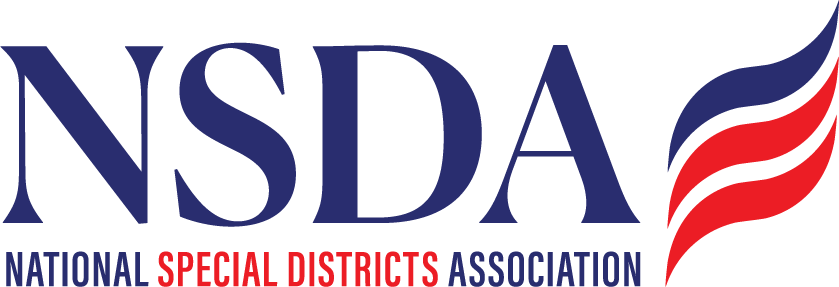NSDA Advocacy Update January 6, 2025
House and Senate Action
On Monday afternoon, the House and Senate convened in a joint session to officially open the first full week of the 119th Congress. With no objections, lawmakers swiftly certified President-elect Donald Trump’s Electoral College victory, clearing the path for his inauguration on January 20th.
In a significant move, Republican lawmakers adopted a new rules package aimed at strengthening protections for the Speaker of the House. The package raises the threshold for initiating a motion to remove Speaker Johnson from one member to nine, reflecting efforts to stabilize leadership dynamics. Additionally, the rules prevent the Speaker from scheduling suspension votes on Thursdays and Fridays. Bills considered on suspension require a two-thirds majority for passage and are typically reserved for non-controversial measures. Speaker Johnson has faced criticism for placing divisive measures on the calendar, often relying on Democratic votes to secure passage rather than broad GOP support.
With an early-week snowstorm and lawmakers honoring former President Jimmy Carter as he lies in state in the Rotunda before his funeral on Thursday, Congress is expected to have a relatively subdued legislative week. In the House, two bills are set for consideration, including the Laken Riley Act (H.R. 29), which would require the Secretary of Homeland Security to detain undocumented immigrants arrested for theft. The second measure – the Illegitimate Court Counteraction Act (H.R. 23) – would impose sanctions on the International Criminal Court (ICC).
Trump Rallies GOP Support for Massive Budget Reconciliation Package
This weekend, Republican lawmakers met behind closed doors to map out their strategy for passing a sweeping border, tax and energy package at the heart of their legislative agenda. During the meeting, Speaker Johnson indicated that President-elect Trump wants lawmakers to pass one large package via the filibuster-proof budget reconciliation process. While Trump voiced support on Sunday night for the one-bill strategy, he subsequently indicated that he’d be open to Senate Majority Leader John Thune’s (R-SD) two-bill approach. While not favored by Trump, this path would address his key domestic policy priorities first, followed by an extension of his 2017 tax cuts later in the year. Dozens of House Republicans are set to meet with the president-elect this weekend at Mar-A-Lago, where Trump is expected to pressure them into supporting his one-package plan.
Because the reconciliation package will require months of negotiations, timing is not certain, but House Speaker Johnson says he’s aiming to introduce the bill during the first week of April, with final passage expected by the end of the month. At the very latest, Johnson hopes to deliver the legislation to President-elect Trump’s desk by Memorial Day. However, the path to any agreement will be undoubtedly complicated: with a one-vote margin in the House, Republicans will need near unanimity on the measure.
Lawmakers Introduce Legislation to Address Forest Management Concerns
Congressman Doug LaMalfa (R-CA) recently introduced legislation – the Targeted Operations to Remove Catastrophic Hazards (TORCH) Act – designed to enhance forest management and wildfire mitigation efforts. The TORCH Act aims to streamline and expedite forest management projects by expanding categorical exclusions, allowing forest thinning and post-fire recovery across significantly larger areas of national forests. This expansion would provide land managers with greater flexibility to address hazardous conditions promptly and effectively.
A key focus of the legislation is the removal of hazardous trees and vegetation in high-risk areas, which can serve as fuel for catastrophic wildfires. In addition, the TORCH Act includes provisions to promote cross-boundary wildfire mitigation, improve wildfire resilience, and restore forest health. The bill emphasizes collaboration with local partners, fostering cooperative approaches to land management and wildfire prevention. It also strengthens the Good Neighbor Authority, enabling federal agencies to partner with state and local governments to implement cross-boundary wildfire risk reduction projects.
Complementing LaMalfa’s efforts, Congressman Tom McClintock (R-CA) has reintroduced three bills addressing forest management challenges. The first (H.R. 178) would direct the U.S. Forest Service (USFS) to immediately suppress all wildfires – excluding prescribed burns – on National Forest System (NFS) lands. This measure responds to incidents like the 2021 Tamarack Fire, which was initially allowed to burn naturally under USFS policy. High winds later caused the fire to spread uncontrollably, burning nearly 70,000 acres before it was finally extinguished.
McClintock’s second bill – the Action Versus No Action Act (H.R. 184) – would streamline environmental reviews by requiring federal land management agencies to evaluate only two alternatives for forest management projects: the proposed action and the alternative of taking no action. This approach seeks to simplify decision-making processes and reduce delays caused by analyzing multiple alternatives, which can often stall projects.
The third measure – the Proven Forest Management Act (H.R. 179) – would establish a categorical exclusion for forest thinning projects up to 10,000 acres under specific conditions. This legislation builds on a successful model implemented in the Tahoe Basin, which has demonstrated the effectiveness of targeted thinning in reducing wildfire risk and improving forest health.
Relevant Grant Opportunities
Building Resilient Infrastructure and Communities (BRIC): This program, which is administered by FEMA, provides funding to states, local governments, tribes, and territories to undertake hazard mitigation projects, aiming to reduce disaster risks and build community resilience. For FY 2025, $750 million will be available. FEMA will continue providing tailored technical support to communities that may not have the resources to begin climate resilience planning and project solution design on their own. Communities interested in submitting a request for assistance may do so through April 18, 2025. FEMA will publish a new form online to streamline and simplify the submission process. More information on the program is available here.
Flood Mitigation Assistance: This program provides grants to projects that reduce or eliminate the risk of repetitive flood damage to buildings insured by the National Flood Insurance Program. Applications are due by April 18, 2025. Local governments should consult with their state, tribal, or territorial agencies to confirm deadlines to submit sub-applications. Additional details can be found here.
